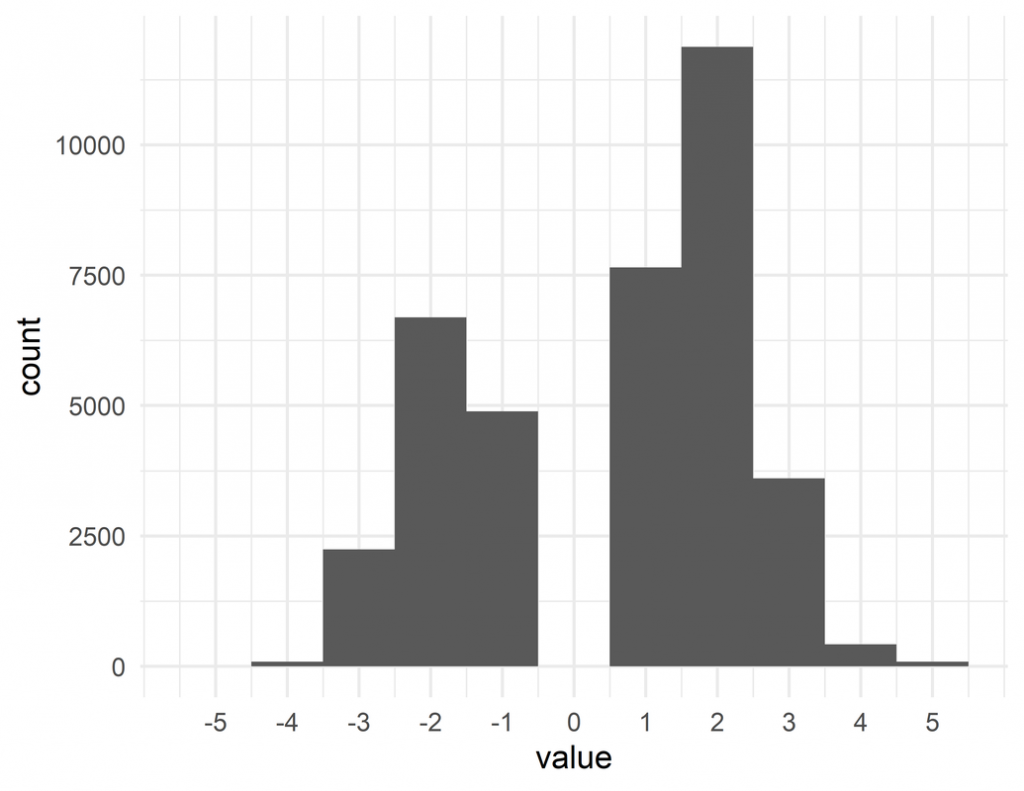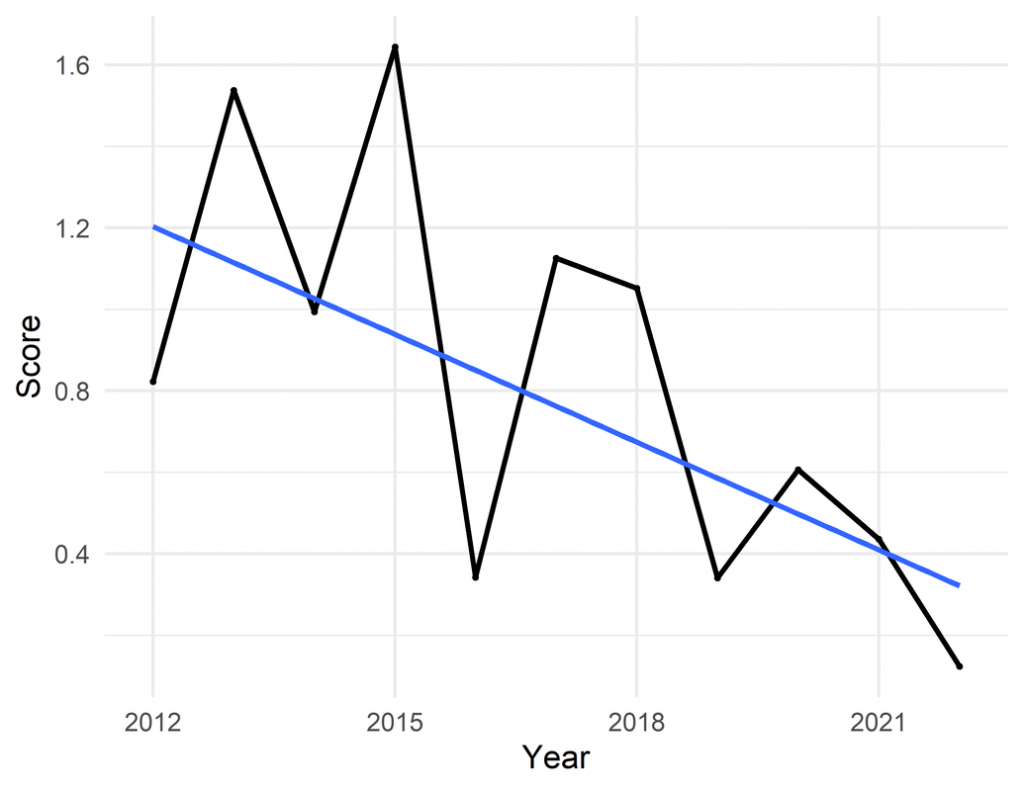How the Press Feels about Philosophy
While major newspapers report on philosophy with, on average, slightly positive sentiment, it seems this positive sentiment becomes slighter by the year.
Charles Lassiter (Gonzaga) has conducted a “sentiment analysis” of news stories about philosophy during the decade of 2012-2022. What is sentiment analysis? Professor Lassiter says:
Sentiment analysis is exactly what it sounds like: getting an analysis of the positive and negative sentiments in a text. There are a few different ways to do this. The AFINN corpus from Finn Arup Nielsen tags words with a value between -5 (“bastard”, “motherfucker”) and 5 (“outstanding”, “superb”), excluding 0. We’ll be using that.
Applying this analysis to 686 articles about philosophy in national and local newspapers (filtered so as to exclude articles about, say, the Philosophy cosmetics brand, or a basketball coach’s “philosophy” for the upcoming game), he found, on average, a little more positive than negative sentiment:

Sentiment analysis of U.S. newspaper articles about philosophy from 2012-2022, by Charles Lassiter
However, an analysis of how sentiment has changed year by year reveals a negative trend:

Sentiment trend in U.S. newspaper articles about philosophy from 2012-2022, by Charles Lassiter
You can learn more about Professor Lassiter’s analysis at his site, Soaked Feet, Bone-Dry Cuffs.
I think one could raise some questions about what can be learned from the analysis. For example, it could be that Professor Lassiter’s method for filtering out irrelevant results—he did so by excluding articles that did not mention “liberal arts”—skewed the results negative.
It could also be that neutral or positive articles about philosophy books with “negative” subject matter or the use of “negative” words were mischaracterized by the analysis. Consider Assholes: A Theory by Aaron James (2014), or A Theory of Jerks and Other Philosophical Misadventures by Eric Schwitzgebel (2019), two books widely discussed in the media during the studied period. Or recall that there have been many articles on recent books about women in the history of philosophy, which might have been identified as having negative sentiment because they discussed discrimination, exclusion, and harassment. And of course there have been articles on philosophical work concerning negative-sounding topics, such as The Case for Rage: Why Anger is Essential to Anti-Racist Struggle (2021) by Myisha Cherry or Grief: A Philosophical Guide (2022) by Michael Cholbi (to name just a couple). It would be helpful to know whether the sentiment analysis accurately sorted articles about these and similar books.
Despite such concerns, it may be that, in general, Professor Lassiter’s results hold up. In light of that possibility, we might ask about their causes, whether we should be concerned about them, and what, if anything, we should do to reverse the trend.



This is great. One question: is news in general more negative now? (Feels that way, and with the social media negativity bias there is a plausible supporting mechanism for that.)
Thanks! That’s a great question. This suggests that news headlines have become more negative in the last few decades: https://journals.plos.org/plosone/article?id=10.1371/journal.pone.0276367 They use a LLM, which is way more sophisticated than my humble R scripts. So if that’s right, maybe the upshot is that the news reports that everything sucks, including academic philosophy?
I can get on board with that 😉
It might seem, to conscious observers, that not only has the extant world, shrunk down to – ‘we are all in this together’; but also: that bringing the realities of homo sapiens’ negative impacts on all life here in our planet is now an act of truthing And compassion for what once men and women believed was their right in dominion, which was never that, a right! Instead, look closely, a very real responsibility, now shunned, on global scale by they that appear, M. Morality, to have little or none.
Are we in it for ourselves alone, or are all Her inhabitants (Madam Nature’s) our charge and daily task to uphold and try to see Her, unhurt by us individually, on Her very Simple, and so complex way?